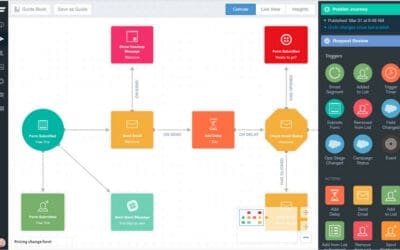In today’s fast-paced and ever-changing business environment, the ability to lead with resilience and adaptability is essential. Leadership requires psychological flexibility to navigate through challenges, inspire their teams, and foster a culture of innovation. This article explores the key skills and strategies that can help you become a more resilient and adaptable leader.
Understanding Psychological Flexibility
Psychological flexibility refers to the ability to adapt to changing situations and maintain a balanced perspective under pressure. It involves being open to new experiences, embracing change, and effectively managing stress. Leaders with high psychological flexibility can pivot their strategies, support their teams through challenges, and seize opportunities that arise from change.
The Components of Psychological Flexibility
Psychological flexibility comprises several key components:
- Acknowledgment: Recognizing and accepting your thoughts and feelings without judgment.
- Mindfulness: Being present in the moment and aware of your surroundings and emotions.
- Values Clarity: Understanding your core values and how they influence your decisions.
- Commitment: Taking action towards your goals based on your values, even in the face of obstacles.
- Adaptability: Willingness to change your approach when circumstances require it.
Building Resilience as a Leader
Resilience is the ability to bounce back from setbacks and maintain focus on your goals. Here are several strategies to build resilience as a leader:
1. Foster a Growth Mindset
A growth mindset encourages you to view challenges as opportunities for learning and development. Embrace failures as stepping stones to success and encourage your team to do the same. This mindset shifts the focus from fixed abilities to the potential for growth and improvement.
2. Practice Self-Care
As a leader, taking care of your physical and mental health is crucial. Prioritize self-care by ensuring you get enough rest, exercise, and time for relaxation. Regular self-reflection can also help you manage stress and maintain a positive outlook.
3. Build Strong Relationships
Developing strong relationships with your team can provide a support system during challenging times. Open communication, trust, and collaboration foster a sense of belonging and make it easier to navigate difficulties together.
4. Stay Solution-Focused
When faced with challenges, maintain a solution-focused approach. Encourage your team to brainstorm solutions rather than dwelling on problems. This proactive mindset can lead to innovative ideas and a more resilient team.
Enhancing Adaptability in Leadership
Adaptability is crucial for leaders to respond effectively to change. Here are some techniques to enhance your adaptability:
1. Embrace Change
Instead of resisting change, embrace it as a natural part of growth. Stay informed about industry trends and be willing to pivot your strategies as necessary. This proactive approach can position you and your team for success.
2. Encourage Innovation
Create an environment where team members feel safe to share new ideas and take calculated risks. Encourage experimentation and celebrate creative solutions, reinforcing the importance of innovation in your organization.
3. Develop Decision-Making Skills
Effective decision-making is essential for adaptability. Practice making informed decisions quickly, even with limited information. Balance data-driven insights with intuition to navigate complex situations confidently.
4. Seek Feedback
Regularly seek feedback from your team and stakeholders. This practice not only fosters open communication but also provides valuable insights that can inform your decisions and strategies. Being receptive to feedback can enhance your adaptability and help you adjust your leadership style as needed.
Conclusion
Becoming a resilient and adaptable leader is an ongoing journey that requires commitment and practice. By developing psychological flexibility, fostering resilience, and enhancing your adaptability, you can lead your team through change and challenges with confidence. Embrace the skills outlined in this article, and you will not only thrive as a leader but also inspire your team to do the same.







